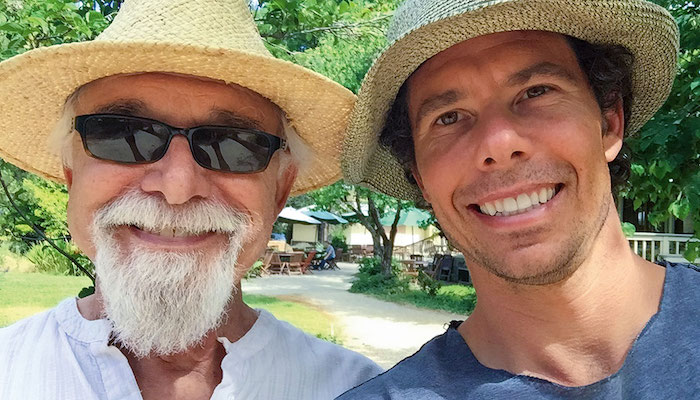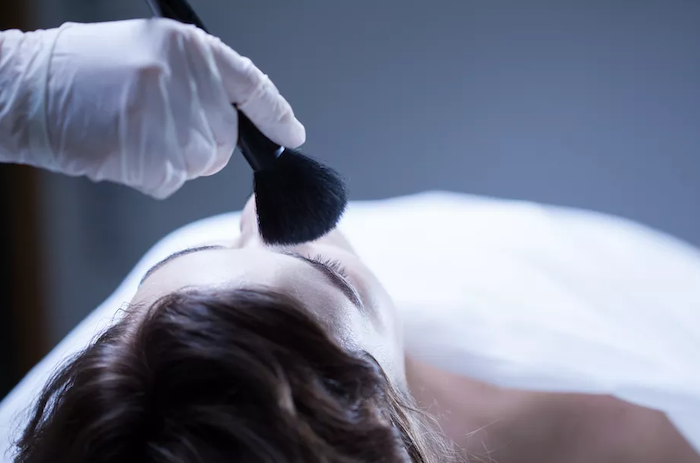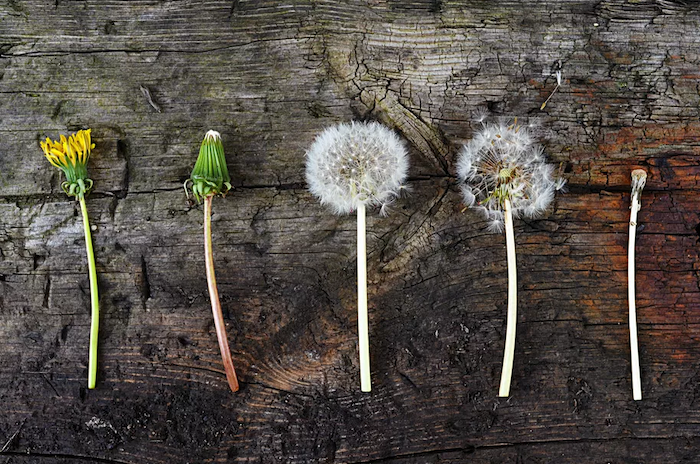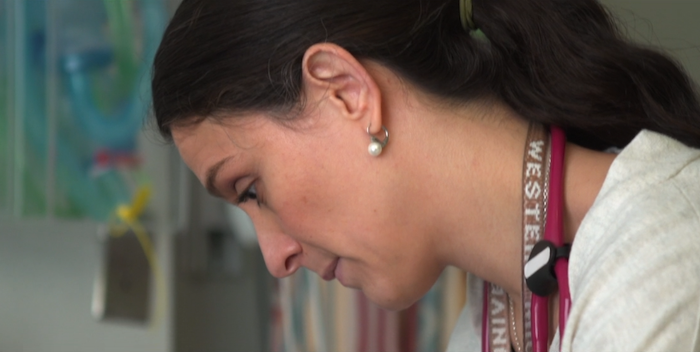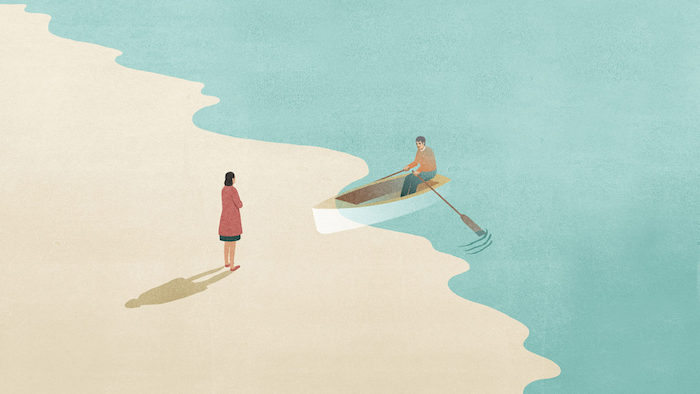Now that there’s no longer any way to treat my cancer, I’ve been reflecting on what I want others to know about life and death

At the beginning of April I wrote a piece for the Guardian. If you haven’t read it, the headline pretty much sums it up: “Terminal cancer means I won’t see the other side of lockdown”. Given the pandemic and the announcement of shielding for vulnerable people, I thought I wouldn’t be able to live out my last few months in the way I’d imagined. It seemed like I would be stuck alone, with no light at the end of the tunnel, and without the comfort of friends or family.
Five months on, I’m still here, but much has changed. Thankfully, the experience wasn’t as bleak as you might think. During the first few weeks of lockdown I found I was floating nicely through the time by staying occupied and upbeat. In many ways, you can’t beat the liberation of being able to wake up when you feel like it, having few plans set in stone and being able to do whatever you want with the time you have.
Over the past couple of months, though, my energy levels have dropped, and I have started doing less. I look drastically different. I have lost a lot of weight. A 20-minute coughing fit is now part of my morning routine while my chest tries to settle itself. It’s nothing that some steroids, morphine, an iced drink to settle my throat and time spent dry-heaving in front of a bucket won’t eventually sort out, but it can get really distressing – like an intrinsic panic response.
At points I was really struggling. The loneliness of Covid was making me miserable, and I needed company. But my sister came to the rescue at just the right moment. She moved back into our shared flat at the end of June. It made a huge difference, and I don’t know where I would be without her. After months of isolation, having a family member close by changed everything.
At the same time, out of the blue, I was told I was finally suitable for a drug trial that had been dangled in front of me for more than a year. The oncologists made it very clear that this would not be a “magic bullet”, and the goal would be to extend life by a few months. The aim of the treatment would be to stop the cancer stealing all the nutrients and energy my body needs.
But I was not in the same good shape I had been in at the beginning of other treatments; I was extremely short of breath, unable to exercise and felt lethargic. And after pinning my hopes on the idea of a drug trial for so long, it took just over a week for it to batter me. My days involved moving from my room to the sofa, feeling like I had flu and struggling with mental fog. Almost immediately I realised I just couldn’t do it. Life for me is about living, not just clocking up the years. And this drug made living almost impossible.
I realised I had to finally accept the inevitable: that there was no treatment. I thought this mindset would leave me feeling completely liberated. I was wrong. With nothing left to fight, it really was just a question of waiting. The battle became emotional and mental. It has forced me to reflect.
The first three decades of my life were pretty standard. Well, actually they were awesome, and everything was going pretty perfectly with regards to work, health, relationships and friends. I had plans for the future, too: learn some Spanish, see more of central America, and get a bit more out of it with some volunteering too.
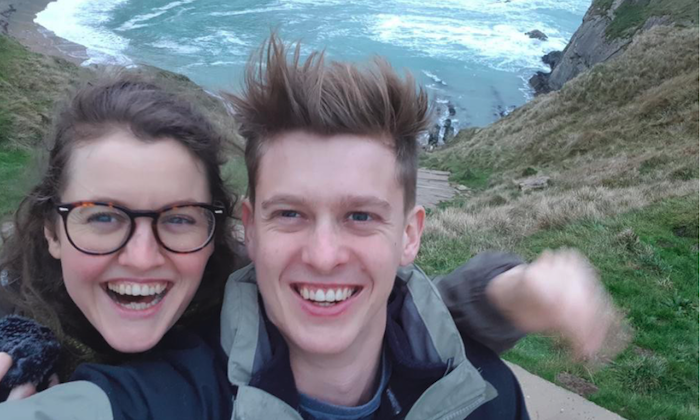
I imagined settling down in my 30s or 40s with kids, a mortgage and so on. Or maybe I wouldn’t. Maybe my friends’ children would call me Uncle Elliot as their parents gathered in the kitchen looking slightly concerned about their single 45-year-old friend about to set off travelling around Mongolia. Either way, growing older with my mates and living my life to the full was always my ambition.
Of course, the second part of this storyline won’t be written now. It’s a shame I don’t get to see what happens. But everybody dies, and there will always be places and experiences missing from anyone’s life – the world has too much beauty and adventure for one person to see. I will miss marriage or children, blossoming careers and lives moving on. But I’m not alone in my life being cut short, and I think my time has been pretty good.
At this point I should say a word to my friends. Being this ill complicates all relationships. The rut I found myself in a few weeks back hasn’t lifted. I’ve definitely been “feeling the victim” a lot more than usual. My acceptance that my time and energy is now limited comes with the knowledge that I won’t be able to catch you all properly to give our relationships the time and appreciation they deserve. I get so many messages from you all, which often exceed the energy I have to reply. Where I am able to see people, I’d just say keeping me company and being positive is helpful. I want fun, laughter, happiness, joy. I think it’s very possible to have this kind of death – there is likely to be a shadow of sadness hanging over proceedings, but for the most part I want everyone relaxed and to be able to feel the love.
Because I know that that moment isn’t too far away. I haven’t asked for a specific prognosis, as I don’t believe there’s much to gain from doing so, but I think it’s a matter of weeks. Medicine has luckily turned this into quite a gentle process. That really does take a lot of the fear away. And I’m hoping impending death now grants me the licence to sound prematurely wise and overly grandiose. Because I’ve had time to think about the things that are really important to me, and I want to share what I’ve discovered.
First, the importance of gratitude. During my worst moments – the shock of cancer diagnosis, the mental lows and debilitating symptoms of chemotherapy – it was difficult to picture any future moments of joy, closeness or love. Even so, at those times I found comfort in remembering what I have: an amazing family, the friends I’ve made and times I’ve shared with them, the privilege of the life I’ve had.
Second, a life, if lived well, is long enough. This can mean different things to different people. It might mean travel. I’ve had the good fortune to be able do this, and can confirm that the world is a wonderful place full of moments of awe and amazement – soak up as much as you can. It may mean staying active, as much as possible – the human body is a wonderful thing. You only appreciate this when it starts to fail you. So when you find yourself slipping into autopilot, catch yourself, and take simple pleasure in movement, if you can. Look after your body because it’s the only one you have, and it’s bloody brilliant. Knowing that my life was going to be cut short has also changed my perspective on ageing. Most people assume they will live into old age. I have come to see growing old as a privilege. Nobody should lament getting one year older, another grey hair or a wrinkle. Instead, be pleased that you’ve made it. If you feel like you haven’t made the most of your last year, try to use your next one better.
Third, it’s important to let yourself be vulnerable and connect to others. We live in a society that prizes capability and independence, two things that cancer often slowly strips away from you. This was naturally a very difficult pill to swallow for a healthy, able late-twentysomething male, but having to allow myself to be vulnerable and accept help has given me the best two years of my life, which was pretty inconceivable at the time of diagnosis. Vulnerability has shown me what phenomenal people my sister and parents are – words can’t do justice to how much they have done for me. The same applies to my friends – what better way is there to spend two years than being surrounded regularly and closely by these people?
Fourth, do something for others. Against the backdrop of Covid-19, Black Lives Matter and the desperate attempts of migrants to cross the Channel, my thoughts really turned to those who have not had my privilege – whether that’s by virtue of socioeconomics, ethnicity or the country I was born in. I always try to remind myself of this.
Fifth, protect the planet – I can’t leave this off because it’s so important. I’ll be gone soon, but humanity will still be faced with the huge challenge of reducing carbon emissions and saving habitats from destruction. In my time here, I’ve been lucky enough to see some natural wonders and understand how precious they are. Hopefully future generations will be able to say the same. But it will take a massive collective effort.
If you asked me what I’d want to leave behind, it would be a new awareness of these things among my friends – and anyone who’ll listen, really. I was astonished by the number of people that responded to my article in April. I now find myself in a position where people are asking me how they can help or what they can do that would make me happy. Apart from the obvious – looking after each other once I’ve gone – I’m going to push for people to give, be that money or time. I’ve already had so many people ask which causes I recommend, and there are loads, but I’d say any that align with the values I’ve sketched out above would have my blessing. Among friends and family there is talk of setting up a small charity in my memory.
Despite some very low times, it’s worth repeating that the period since being diagnosed has been made not just bearable but actually fantastic. I’ve had new experiences that haven’t seemed tainted by cancer – and those experiences were, as always, much better shared. In a situation that is pretty new for most of my loved ones and friends (I am yet to meet anyone I grew up with who has had to deal with cancer or a similar chronic illness at my age), it has been amazing watching them all rise to the challenge. I’m not sure if it’s just that I know a high proportion of amazing people (possible) or if most human beings have this capacity for connecting and recognising what’s truly important (very likely).
After the gut-punch of cancer diagnosis, I’ve really struggled to define a purpose for my own life. I found in time this came naturally. Life is for enjoyment. Make of it what you can.
Complete Article ↪HERE↩!


